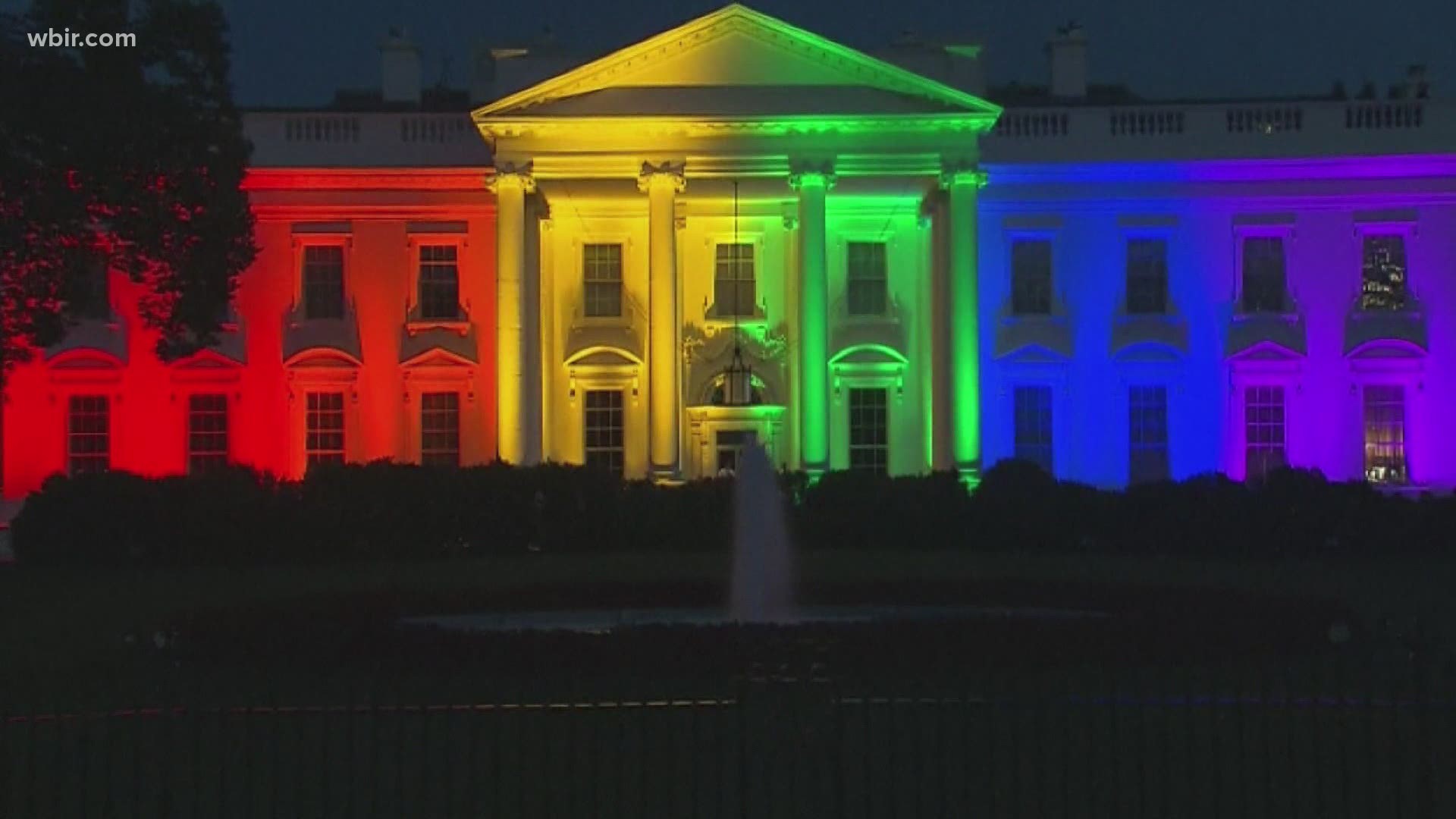KNOXVILLE, Tenn. — On June 26, 2015, couples around the U.S. embraced as one of the most defining Supreme Court decisions in recent history was handed down. It was when Justin Kennedy concluded in Obergefell v. Hodges that same-sex marriage was legal in the U.S.
The case was partly driven by a couple living in Knoxville, whose marriage was no longer recognized when they moved to Tennessee. Val Tanco and Sophy Jesty were married in 2011 when they lived in New York. At the University of Tennessee, they met Regina Lambert Hillman who represented them.
Tanco was pregnant, and if there were issues during labor the state would not have recognized Jesty as a parent. The issue was combined with other issues from people for the Supreme Court case.
Kennedy's official opinion on the matter was resounding. It can be read in full below:
“No union is more profound than marriage, for it embodies the highest ideals of love, fidelity, devotion, sacrifice, and family. In forming a marital union, two people become something greater than once they were. As some of the petitioners in these cases demonstrate, marriage embodies a love that may endure even past death. It would misunderstand these men and women to say they disrespect the idea of marriage. Their plea is that they do respect it, respect it so deeply that they seek to find its fulfillment for themselves. Their hope is not to be condemned to live in loneliness, excluded from one of civilization's oldest institutions. They ask for equal dignity in the eyes of the law. The Constitution grants them that right.”
Many states had legalized same-sex marriage before the federal ruling, and the decision was marked as a sign of progress for the overall LGBTQ+ community. Controversies stemmed from the decision, and many people are still working for equality in the years since the decision.
Some advocates and leaders say people with disabilities still face marriage inequalities. They say benefits related to social security payments or similar programs can be interrupted if they get married. Some say that if two people receiving social-security benefits get married, they may receive 25% less in benefits than they would as two individuals.
Transgender and LGBTQ+ people in Tennessee also said they face challenges. New laws prohibit transgender students from participating on high school sports teams of their gender identity. Another prohibits healthcare providers from prescribing hormone treatments to minors.
Two bathroom bills were also signed into law in the state. One opens school districts up to lawsuits if they allow transgender people to use the bathroom corresponding to their gender identity. Another requires businesses and government offices to post signs notifying people if transgender people can use the bathroom corresponding to their gender identity.
LGBTQ+ people can also face challenges in getting healthcare. Many may be unable to find healthcare in their area, can encounter individual discrimination or simply not be able to afford it due to lower incomes.
A relatively new ruling in the Supreme Court also determined people could not be fired from their jobs for their sexual orientation or whether they were transgender. That decision came in June 2020.

